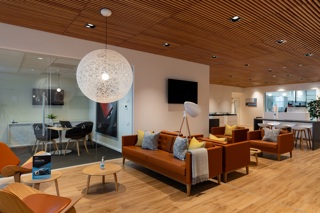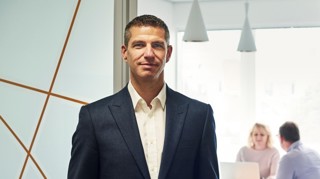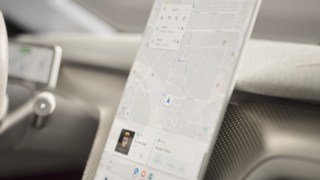AM: What do you picture as a perfect Volvo dealer? Is it owner operator, does it have a limited number of brands in the portfolio to give you adequate share of voice?
KM: Certainly our most successful dealers tend to be solus Volvo owner-drivers, or smaller retail groups.
AM: Why is that?
KM: The longer standing dealers tend to be the most successful. It takes some time to understand what Volvo’s all about in the way we are pitching to the market place, because we are a relatively small player, and we are different from the established German competition.
It takes some time to really understand Volvo and to appreciate what customers want out of the brand as well.
AM: The luxury end of the market is quite crowded.
KM: The vision is for our cars to be as straightforward and intuitive as any other brand to interact with.
We talk internally about our cars being designed around ‘you’ and everything that is going on in product development at the moment is about making our cars more straightforward to interact with, making it more attractive for people to sit in, to drive, to live with.
As technology has developed, cars have got more and more complicated. There was a comedian I heard recently saying he only understands half the buttons on his dashboard and I think that’s the problem.
We’ve got too clever for our own good, so there’s also a focus on really emphasising Scandinavian design, simplicity, nothing unnecessary, but the highest-quality materials, highest-quality engineering integrity.
AM: Using our AMi product (www.am-online.com/ami) which tracks the performance and network of 200 dealer groups we can see that Johnsons Cars has a longstanding relationship with Volvo. It grew with you, but it’s diverted to Volkswagen and latterly Hyundai. Does this group spring to mind as one that you know represents the qualities you look for in dealers?
KM: Yes. We have a very close relationship with Johnsons and I personally work with them on a quarterly basis, along with a number of other members of Volvo management and we sit down and go through performance, we go through the KPIs and, in that respect, I think the discipline is pretty perfect, as both they and we will continue to improve our performance.
AM: If you look at 2012 and everyone you talk to is particularly down on the market is there anything you’re saying to actively boost confidence and performance. Are there some KPIs or programmes you’re specifically going to work on?
KM: I think there is an absolute requirement for dealers’ profitability to be at the head of it together with their quotas, and the major activity that we’re launching now is a leadership development programme for the dealers.
AM: Why is this needed?
KM: I’m disappointed that we’ve failed to deliver management development for our dealers that has been anything other than forcing them into it or only giving it to the people who want it and therefore perhaps don’t need it.
AM: What can you teach an established, successful dyed in the wool dealer?
KM: I’m conscious that dealers have a skill set; we have a skill set; we can’t sell cars, otherwise we’d probably be doing it.
But what we do have is a lot of intelligence about best practice, about ways of managing in order to be masters of our own destiny, and what we will do is try to help focus dealers on the things that will drive the critical performance improvements for them.
AM: How does the new leadership programme acknowledge this?
KM: Every dealer will be invited to put forward their three top managers.
They’re likely to be the principal or sales manager, aftersales manager, but they don’t necessarily have to be that, and over the next three years we will go through a modular training programme with them and each of those modules will have a number of KPIs embedded in it.
We’ll look at their composite and their management accounts and look at what is most vital to improve their ongoing performance and viability.
AM: You mentioned a focus on aftersales a year ago, and that service retention and retail service hours was a key area – as they’d fallen slightly from 7,500 to 7,160 – and taking the battle to the independent sector on the fallacy that it was always cheaper than the franchised network.
KM: Yes absolutely, and there’s a couple of major things from my perspective that are impacting on that and we spent the majority of last year developing what we call the Volvo Service Promise.
We realise the customer perception of independents being more cost effective than the franchise network is an almost impenetrable view and is not something we’re going to change in the short term so what we’ve tried to do is show customers that when stepping through the door of a Volvo dealer you get something tangibly different from what you would get from others.





















Login to comment
Comments
No comments have been made yet.